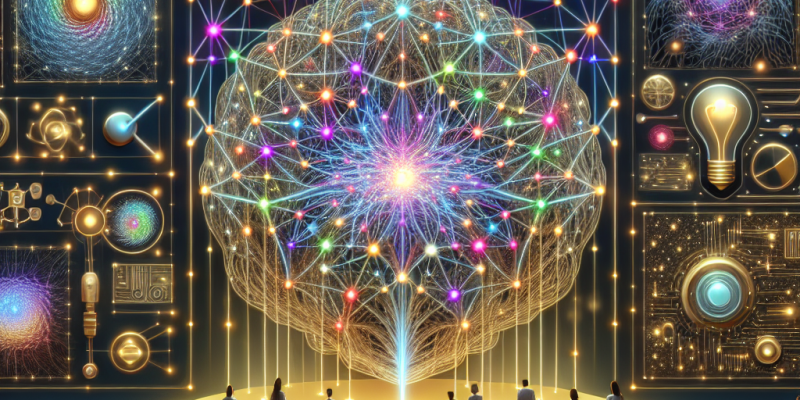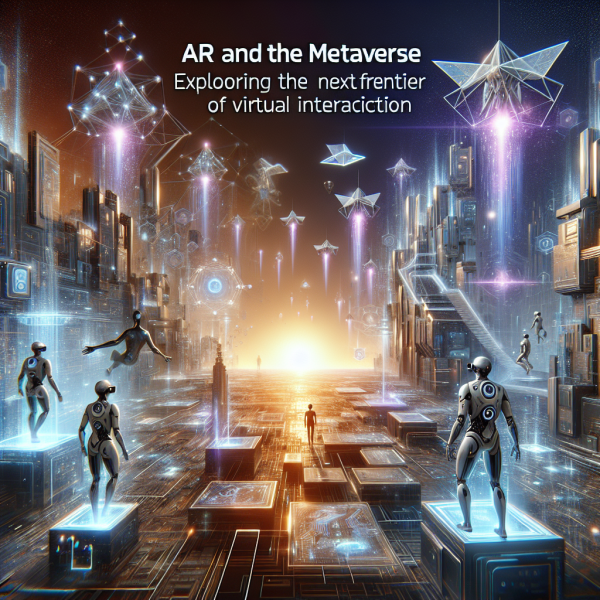Unlocking New Potential: Quantum Computing and Its Impact on Artificial Intelligence

Unlocking New Potential: Quantum Computing and Its Impact on Artificial Intelligence
In recent years, the intersection of quantum computing and artificial intelligence (AI) has emerged as one of the most exciting frontiers in technology. Both fields are undergoing rapid evolution, each holding the promise of transformative capabilities. While AI leverages vast amounts of data and sophisticated algorithms to learn and make decisions, quantum computing offers a fundamentally different compute paradigm that can process information in ways that classical computers cannot. Together, they have the potential to unlock new possibilities and revolutionize industries.
Understanding Quantum Computing
At its core, quantum computing relies on the principles of quantum mechanics, which governs the behavior of subatomic particles. Unlike classical bits that can be either 0 or 1, quantum bits (qubits) can exist in multiple states simultaneously, thanks to superposition. Additionally, entanglement allows qubits that are entangled to be interconnected, so the state of one qubit can depend on the state of another, regardless of the distance between them. This unique set of properties empowers quantum computers to carry out complex calculations at speeds incomprehensible to classical systems.
Quantum Computing and AI: A Synergistic Relationship
The potential of quantum computing in enhancing AI capabilities is vast. Here are several key areas where their intersection can create profound impact:
-
Data Processing and Optimization: AI systems thrive on data, but processing enormous datasets efficiently remains a challenge for classical computers. Quantum computing can significantly expedite data processing, enabling AI models to train more quickly and accurately. Quantum algorithms can optimize complex problems more efficiently, leading to improved performance in various applications, from logistics to financial modeling.
-
Enhanced Machine Learning Models: Quantum-enhanced machine learning algorithms have the potential to increase the speed and efficiency of training models. For instance, quantum versions of support vector machines and clustering algorithms can potentially tackle high-dimensional datasets that are difficult for classical algorithms, discovering patterns and insights more effectively.
-
Real-Time Decision Making: In fields like autonomous systems, finance, and healthcare, real-time data processing is critical. Quantum computing can help process and analyze data streams instantaneously, leading to better decision-making in vital operations, such as stock trading or patient monitoring.
-
Advancements in Natural Language Processing: Natural language processing (NLP) could significantly benefit from quantum computing’s capabilities. Quantum algorithms may provide faster processing of language models, enabling more sophisticated understanding and generation of human language. This could lead to more intelligent virtual assistants and enhanced human-computer interaction.
- Solving Complex Problems: Some problems in AI, such as those involving combinatorial optimization, require extensive computation. Quantum computing can solve these challenges exponentially faster than classical computing, enabling breakthroughs in areas like drug discovery, materials science, and logistics optimization.
Challenges and Considerations
While the potential benefits are exciting, several challenges remain in the integration of quantum computing with AI:
-
Current Limitations of Quantum Hardware: As of now, quantum computers are still in their infancy, with limitations in coherence time, error rates, and qubit scalability. Significant advancements are needed before they can be relied upon for mainstream AI applications.
-
Algorithm Development: The design of quantum algorithms that can effectively complement and enhance existing AI techniques is still underway. Research into quantum machine learning is ongoing, and it will take time to fully exploit the potential of this synergy.
- Interdisciplinary Knowledge: Merging quantum computing and AI necessitates expertise in both fields, as well as a collaborative approach among computer scientists, physicists, and mathematicians. Bridging this interdisciplinary gap will be crucial for the successful implementation of quantum-enhanced AI.
Conclusion
The convergence of quantum computing and artificial intelligence represents a paradigm shift with the potential to redefine how we solve problems and analyze complex systems. As we continue to explore the capabilities of quantum technology, we stand on the cusp of breakthroughs that could illuminate previously inscrutable questions, drive innovation across sectors, and ultimately enhance the quality of human life. While obstacles remain, the journey toward unlocking this new potential is an exciting one, promising advancements that could reshape our technological landscape for generations to come.













